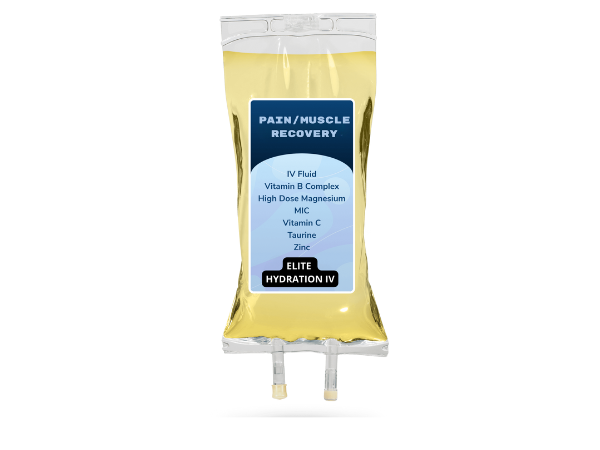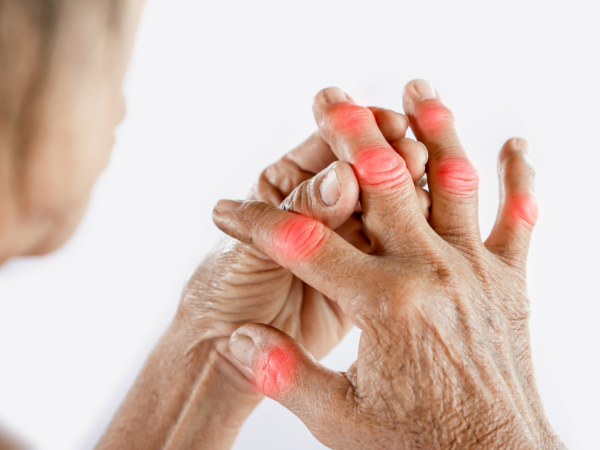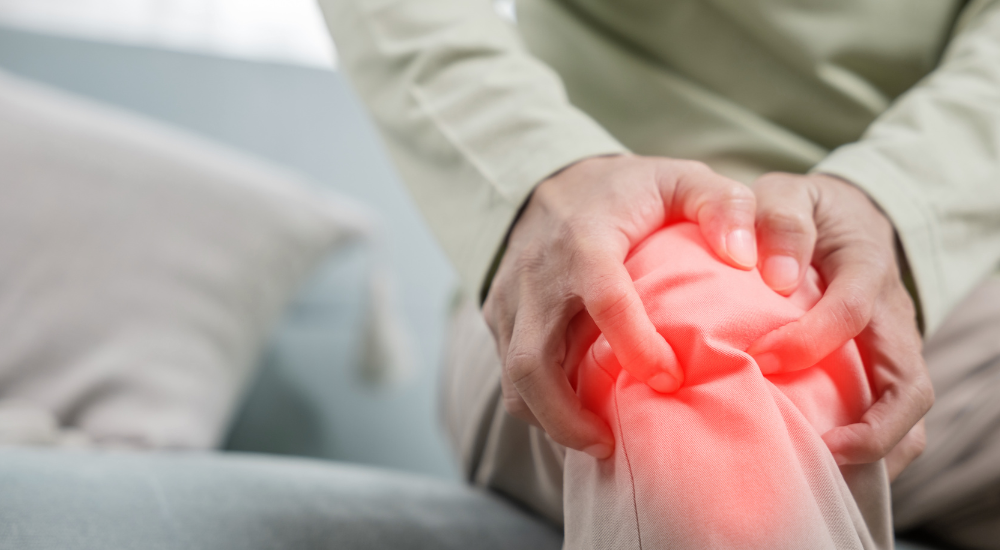Yes, allergies can cause joint pain and muscle pain. Inflammation from allergic reactions may lead to discomfort in joints and muscles.
Allergies can trigger various symptoms beyond the typical sneezing and itching. Many people don’t realize that joint pain and muscle pain might be related to their allergies. The body’s immune response to allergens can cause inflammation, which may result in pain and discomfort in muscles and joints.
Identifying the connection between allergies and these symptoms can help in managing and alleviating the pain effectively. Proper diagnosis and treatment from healthcare professionals can provide relief and improve quality of life. Understanding this link is essential for those experiencing unexplained joint and muscle pain.
The Connection
Allergies are often associated with sneezing, itching, and congestion. However, they can also cause joint pain and muscle pain. Understanding the connection between allergies and these types of pain can help manage symptoms better.
How Allergies Can Impact Joint Health
Allergies can have a significant impact on joint health. When the immune system reacts to allergens, it releases chemicals like histamines. These chemicals can cause inflammation in various parts of the body, including the joints. Inflammation can lead to joint pain and stiffness.
Here are some ways allergies can affect joint health:
- Inflammatory Response: Allergens can trigger the immune system to produce inflammatory chemicals. This inflammation can affect the joints, causing pain and discomfort.
- Autoimmune Reactions: In some cases, allergies can trigger autoimmune responses. The immune system mistakenly attacks the body’s own tissues, leading to conditions like rheumatoid arthritis.
- Histamine Release: Histamines released during allergic reactions can cause swelling and pain in the joints.
Studies have shown that people with allergic conditions like hay fever and asthma are more likely to experience joint pain. Managing allergies effectively can help reduce joint pain and improve overall joint health.
The Link Between Allergies And Muscle Pain
Allergies can also cause muscle pain. The immune system’s response to allergens can lead to widespread inflammation, affecting muscles and causing pain.
Here’s how allergies can lead to muscle pain:
- Inflammatory Chemicals: Allergens trigger the release of inflammatory chemicals. These chemicals can cause muscle inflammation and pain.
- Fatigue and Weakness: Allergies can lead to fatigue and muscle weakness. This can make muscles more susceptible to pain and discomfort.
- Secondary Infections: Allergies can sometimes lead to secondary infections like sinusitis. These infections can cause muscle pain as the body fights off the infection.
Managing allergy symptoms can help reduce muscle pain. This includes avoiding known allergens, using antihistamines, and maintaining a healthy lifestyle.

IV Therapy for Muscle Recovery
The benefits of IV Therapy for Muscle Recovery are vast and impactful, making it a preferred choice for many.
Common Allergens
Allergies can cause more than just sneezing and itchy eyes. They can also lead to joint pain and muscle pain. Understanding the common allergens that trigger these symptoms can help manage them better. Below are some of the most common allergens:
Pollen
Pollen is a fine powder from flowers, trees, and grasses. It is one of the most common allergens, especially during spring and fall. Pollen can enter the body through the nose or mouth, causing allergic reactions.
Symptoms of pollen allergies:
- Sneezing
- Runny nose
- Watery eyes
- Joint and muscle pain
Pollen can trigger an immune response that leads to inflammation. This inflammation can affect the joints and muscles, causing pain. People with conditions like arthritis may find their symptoms worsen during pollen season.
Managing pollen allergies:
- Stay indoors on high pollen days
- Use air purifiers
- Shower after being outside
- Take antihistamines
Dust Mites
Dust mites are tiny insects that live in house dust. They thrive in warm, humid environments. Dust mites can cause allergic reactions and lead to joint and muscle pain.
Symptoms of dust mite allergies:
- Sneezing
- Runny nose
- Watery eyes
- Joint and muscle pain
Dust mite allergies can cause chronic inflammation. This inflammation can spread to the joints and muscles, causing pain. Dust mites are often found in bedding, carpets, and upholstered furniture.
Managing dust mite allergies:
- Use allergen-proof covers on pillows and mattresses
- Wash bedding in hot water weekly
- Keep humidity levels low
- Vacuum regularly with a HEPA filter
Pet Dander
Pet dander consists of tiny, even microscopic, flecks of skin shed by cats, dogs, rodents, birds, and other animals with fur or feathers. People allergic to pet dander often experience joint and muscle pain as part of their symptoms.
Symptoms of pet dander allergies:
- Sneezing
- Runny nose
- Watery eyes
- Joint and muscle pain
Pet dander can trigger an immune response that leads to inflammation. This inflammation can affect the joints and muscles, causing pain. Regular grooming and cleaning can help reduce pet dander in the home.
Managing pet dander allergies:
- Keep pets out of bedrooms
- Use air purifiers
- Wash hands after petting animals
- Consider allergy shots
Food Allergies
Food allergies occur when the immune system reacts to certain foods. Common food allergens include nuts, dairy, and shellfish. Food allergies can cause joint and muscle pain.
Symptoms of food allergies:
- Hives
- Swelling
- Stomach pain
- Joint and muscle pain
Food allergies can cause inflammation throughout the body. This inflammation can spread to the joints and muscles, causing pain. Identifying and avoiding trigger foods is crucial.
Managing food allergies:
- Read food labels carefully
- Use an EpiPen if needed
- Consult with an allergist
- Keep a food diary to identify triggers

Inflammatory Response
Allergies affect many parts of the body, causing symptoms like sneezing, itching, and watery eyes. But can allergies cause joint pain and muscle pain? The answer lies in the body’s inflammatory response. Understanding this process can shed light on how allergies might lead to discomfort in your joints and muscles.
Understanding The Body’s Reaction
When your body encounters an allergen, the immune system reacts to protect you. This reaction involves the release of histamines and other chemicals, leading to inflammation. Inflammation is the body’s way of isolating and attacking foreign substances.
Here are some key points about the body’s reaction to allergens:
- Histamine Release: Causes swelling and redness in affected areas.
- Increased Blood Flow: Brings more immune cells to the site of the allergen.
- Chemical Signals: Attract more immune cells to fight the allergen.
This inflammatory response is crucial for tackling allergens but can sometimes go overboard. When this happens, inflammation can spread to other parts of the body, like joints and muscles.
Consider this table showing common symptoms of allergic reactions and their effects on the body:
| Symptom | Effect on Body |
|---|---|
| Swelling | Increased pressure on joints |
| Redness | Irritation in muscles |
| Itching | Discomfort in movement |
Impact On Joint And Muscle Health
The inflammatory response can extend beyond the initial site of the allergic reaction. This widespread inflammation can affect joints and muscles, leading to pain and stiffness.
Here’s how inflammation impacts joint and muscle health:
- Joint Swelling: Inflammation can cause joints to swell, leading to pain and reduced mobility.
- Muscle Stiffness: Inflammatory chemicals can make muscles feel tight and sore.
- Increased Sensitivity: Inflamed tissues can become more sensitive, causing discomfort even with minor movements.
Inflammation can also exacerbate existing conditions like arthritis. If you have allergies and notice joint or muscle pain, the inflammatory response might be the link. Managing inflammation can help reduce these symptoms.
Consider lifestyle changes and medical treatments to control allergies and inflammation, ultimately improving your joint and muscle health.

Diagnosis
Allergies are more than sneezing and itchy eyes. They can also cause unexpected symptoms like joint and muscle pain. Understanding the diagnosis of allergy-induced joint and muscle pain is crucial for effective treatment and relief. By identifying the symptoms early and seeking medical advice, you can manage this condition better.
Identifying Allergy-induced Joint And Muscle Pain
Recognizing allergy-induced joint and muscle pain is the first step in diagnosis. Here are some common indicators:
- Swelling and stiffness in joints, especially after exposure to allergens.
- Muscle aches that coincide with allergy flare-ups.
- Fatigue and malaise that worsen during allergy season.
These symptoms often overlap with other conditions, making it challenging to pinpoint allergies as the cause. Keeping a detailed symptom diary can help:
| Symptom | Occurrence | Possible Allergens |
|---|---|---|
| Joint Pain | Morning and evening | Pollen, Dust mites |
| Muscle Pain | After meals | Food allergens |
| Fatigue | Throughout the day | Various allergens |
Note the timing, severity, and potential triggers. This information is invaluable for your healthcare provider.
Seeking Medical Advice
If you suspect allergies are causing your joint and muscle pain, consult a healthcare provider. A thorough medical evaluation is essential. Your doctor may recommend:
- Allergy testing: Skin prick tests or blood tests to identify specific allergens.
- Imaging tests: X-rays or MRIs to rule out other causes of pain.
- Elimination diets: To identify food allergens.
Discuss all your symptoms in detail. Mention any patterns or triggers you have noticed. This helps your doctor make an accurate diagnosis.
Treatment options may include:
- Antihistamines to reduce allergic reactions.
- Anti-inflammatory medications to relieve pain and swelling.
- Allergen avoidance strategies to prevent exposure.
Regular follow-ups are crucial. They help monitor your condition and adjust treatments as needed. Your healthcare provider may also refer you to a specialist, such as an allergist or rheumatologist, for further evaluation and management.
Treatment
Allergies can sometimes cause joint pain and muscle pain. Treating the underlying allergies can help reduce these symptoms. This section explores various treatments to manage allergies and alleviate pain.
Managing Allergies To Alleviate Joint And Muscle Pain
Managing allergies effectively can significantly reduce joint and muscle pain. Here are some strategies to help control allergies:
- Avoid allergens: Identify and avoid triggers like pollen, dust, and pet dander.
- Use air purifiers: These devices can reduce airborne allergens in your home.
- Keep your home clean: Regular cleaning can eliminate dust mites and mold.
- Wash bedding regularly: Use hot water to kill dust mites.
- Maintain proper ventilation: Good airflow can reduce indoor allergens.
Diet can also play a role in managing allergies. Foods rich in omega-3 fatty acids, such as fish and flaxseed, can help reduce inflammation. Drinking plenty of water helps keep the body hydrated and can flush out allergens.
Consider the following table for quick tips:
| Tip | Details |
|---|---|
| Avoid allergens | Identify and stay away from triggers. |
| Use air purifiers | Reduce airborne allergens. |
| Clean regularly | Eliminate dust mites and mold. |
| Wash bedding | Use hot water to kill dust mites. |
| Maintain ventilation | Ensure good airflow to reduce allergens. |
Medical And Lifestyle Interventions
Several medical and lifestyle interventions can help manage allergies and alleviate joint and muscle pain. Here are some options:
- Over-the-counter medications: Antihistamines and decongestants can reduce allergy symptoms.
- Prescription medications: In some cases, doctors may prescribe stronger medications.
- Allergy shots: Immunotherapy can gradually reduce sensitivity to allergens.
- Physical therapy: Exercises and stretches can help alleviate muscle and joint pain.
- Stress management: Techniques like yoga and meditation can reduce pain and improve overall well-being.
Maintaining a healthy lifestyle is also essential. Regular exercise can strengthen muscles and improve joint function. A balanced diet rich in anti-inflammatory foods can help reduce pain and inflammation.
Consider the following table for quick interventions:
| Intervention | Details |
|---|---|
| Over-the-counter medications | Antihistamines and decongestants. |
| Prescription medications | Stronger drugs from doctors. |
| Allergy shots | Immunotherapy to reduce sensitivity. |
| Physical therapy | Exercises and stretches for pain relief. |
| Stress management | Yoga and meditation techniques. |






